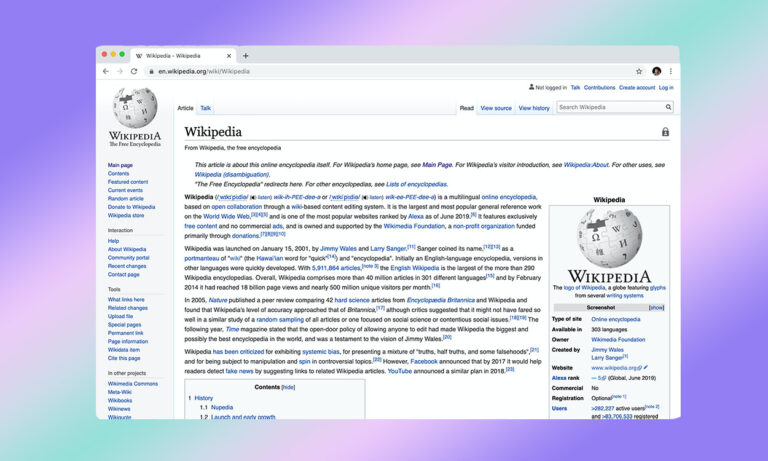Breaking the bias: Introducing the women shattering Wikipedia’s male-dominated content

In the vast realm of the internet, where information reigns supreme and you can always find a good selection of thirst trap pics of Pedro Pascal, one historic monument stands solid: Wikipedia. With millions of articles spanning countless topics, this digital treasure trove has become an indispensable source for seekers of knowledge worldwide—one that its online editors work hard to keep as trustworthy as possible. However, behind the scenes of this colossal encyclopaedia, a persistent problem has long plagued its content: Gender bias.
As stated in a recent episode of Al Jazeera’s The Stream, only 18 per cent of biographical articles on the English language version of Wikipedia are dedicated to women, and a few years ago, it was only 15 per cent. A staggering majority of the site’s content focuses on men, despite the incredible contributions women have made throughout history, science, and culture.
Fortunately, however, a group of courageous Wikipedia editors, also known as ‘Wikipedians’, have risen to the challenge and have begun to dedicate their time to reclaim the narrative and provide a more realistic and accurate historic female perspective.
The Stream shone a spotlight on these fierce female editors as they unveiled their strategies for combating gender bias on the free platform. Their weapons of choice? Determination, resilience, a commitment to equality and a seriously large supply of caffeine to keep them going.
One of their intricate tactics involves actively seeking out and highlighting articles about extraordinary women who have been unjustly overlooked by Wikipedia’s male-dominated team of editors. Through their tireless research and unwavering dedication, these Wikipedians strive to ensure that the stories of exceptional women are brought to light, celebrated, and immortalised within the virtual pages of the online encyclopaedia.
But their work doesn’t stop there. The group of female editors also pour their hearts and souls into revamping existing articles about women who have left their mark on history in one way or another, transforming them into comprehensive and accurate accounts of their subjects’ achievements.
They meticulously weave together the threads of forgotten narratives, shedding light on the brilliance and impact that women have had in every domain of human endeavour. The aim? To ensure that the stories of these unsung heroines are not buried in the annals of history, but rather, stand tall as beacons of inspiration for generations to come.
Speaking to Al Jazeera, Professor Jessica Wade from the prestigious Imperial College of London, and Wikipedia editor, shared a story about Donna Strickland, a woman who, despite being awarded the Nobel Prize in Physics in 2018, did not have a Wikipedia page. Why, you may ask? The answer lies in the scarcity of references and citations that would prove her notability. This stark reality reflects a greater challenge faced by society at large—the recognition and celebration of women’s achievements.
You see, the issue runs much deeper than Wikipedia itself. Society has always struggled to adequately remember and recognise the contributions of women—an inefficiency that’s also led to a serious lack in mainstream media coverage.
This lack of acknowledgement then creates a rather frustrating cycle. Without sufficient sources to cite, Wikipedia editors struggle to build comprehensive profiles of these women.
Wade has had an extensive career where she’s advocated for change and urged scientists and society as a whole to bestow greater recognition upon women, people of colour, and historically marginalised groups.
The professor noted: “We need to give them awards, we need to be shouting for them on television and in radio programmes […] so that when encyclopaedias, historians and classroom teachers want to document them, when they going to look for them, they can have this type of place where they can go for knowledge.”
It’s about shaping the future. Another potent strategy employed by these Wikipedians is the recruitment of more women as editors. Shockingly, only a mere 20 per cent of Wikipedia’s editors are women—a statistic that urgently needs to be changed.
By diversifying the demographic of online editors, these women hope to reshape Wikipedia’s landscape, amplifying the voices of those previously left unheard and creating a more inclusive digital space.





